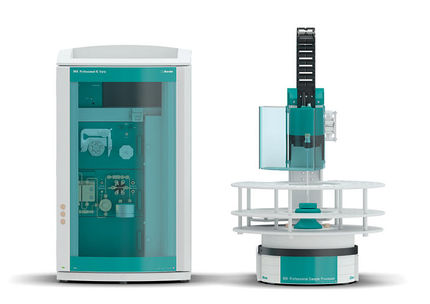To use all functions of this page, please activate cookies in your browser.
my.chemeurope.com
With an accout for my.chemeurope.com you can always see everything at a glance – and you can configure your own website and individual newsletter.
- My watch list
- My saved searches
- My saved topics
- My newsletter
Carbonization
Product highlightWhen biomaterial is exposed to sudden searing heat (as in the case of an atomic bomb explosion or pyroclastic flow from a volcano, for instance), it can be carbonized extremely quickly, turning it into solid carbon. In the destruction of Herculaneum by a volcano, many organic objects such as furniture were carbonized by the intense heat. In one study a new catalyst was developed for the generation of biodiesel from ethanol and fatty acids such as oleic acid or stearic acid by carbonization of simple sugars such as glucose and sucrose. The sugars were processed for 15 hours at 400 °C under a nitrogen flow to a black carbon residue consisting of a complex mixture of polycyclic aromatic carbon sheets. This material was then treated with sulfuric acid which functionalized the sheets with sulfonite, carboxyl and hydroxyl catalytic sites. References
|
| This article is licensed under the GNU Free Documentation License. It uses material from the Wikipedia article "Carbonization". A list of authors is available in Wikipedia. |
- K-space_(MRI)
- Ring_opening_metathesis_polymerisation
- Tuttle_Silver_Company
- Category:Antiparasitic_agents
- BASF annonce un partenariat d'innovation avec RiKarbon sur des émollients dérivés de biodéchets - Les technologies innovantes de RiKarbon facilitent la production commerciale de produits chimiques renouvelables et d'ingrédients très performants.







